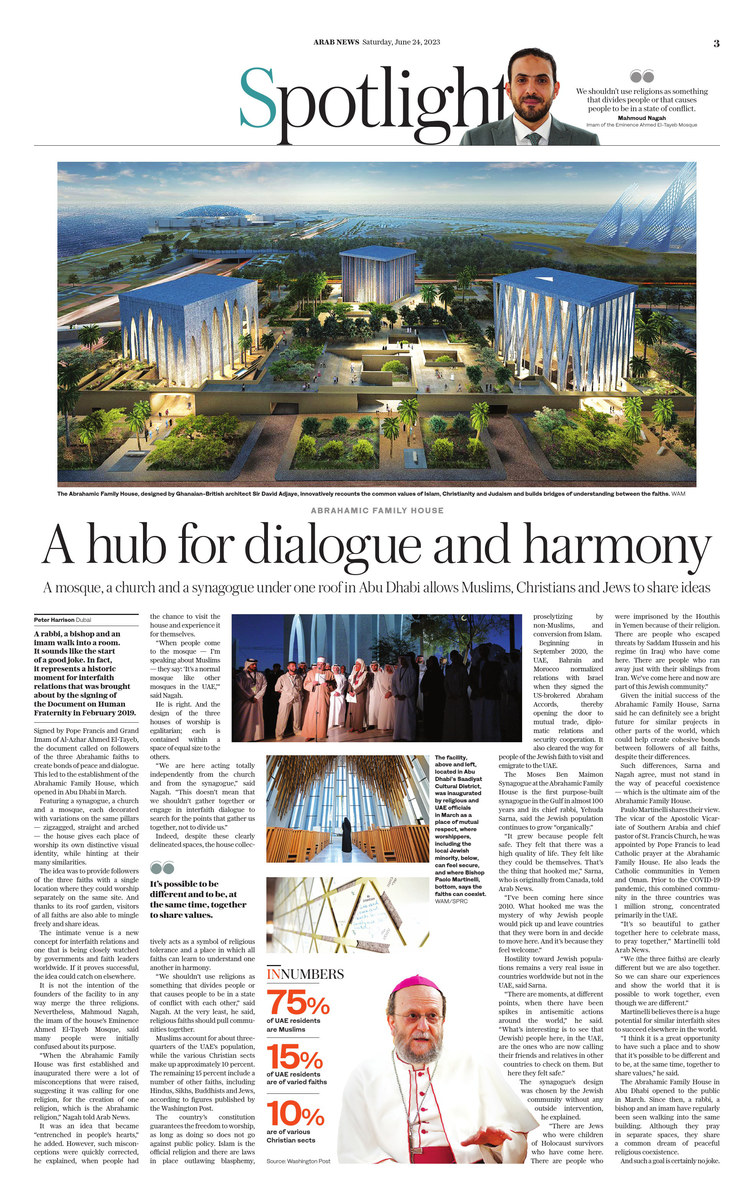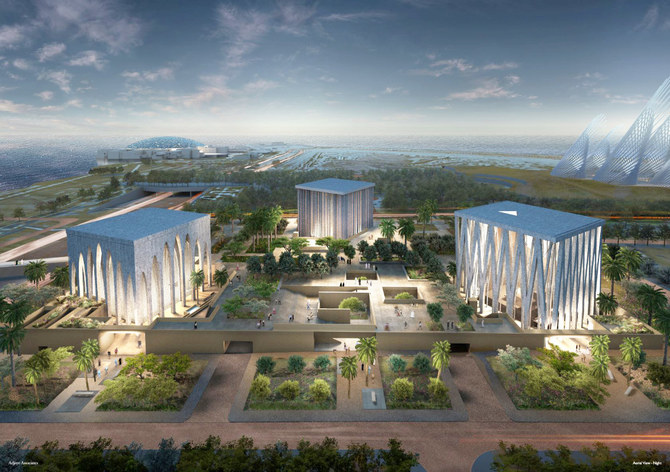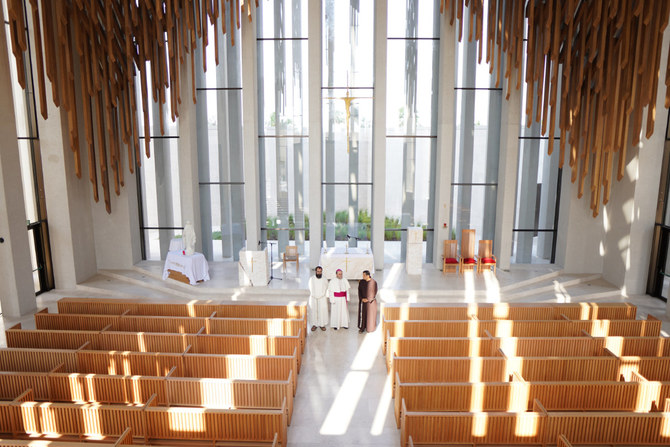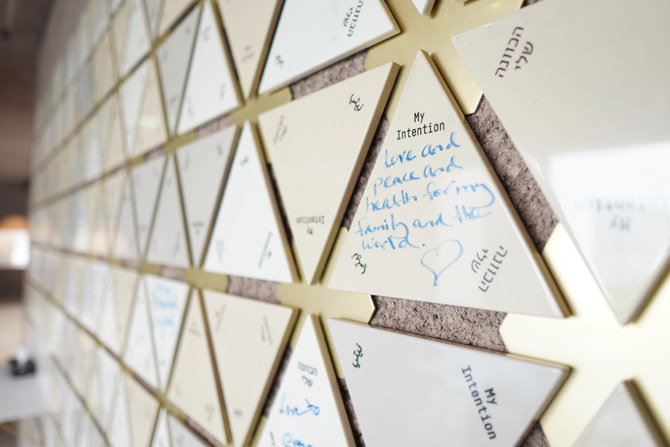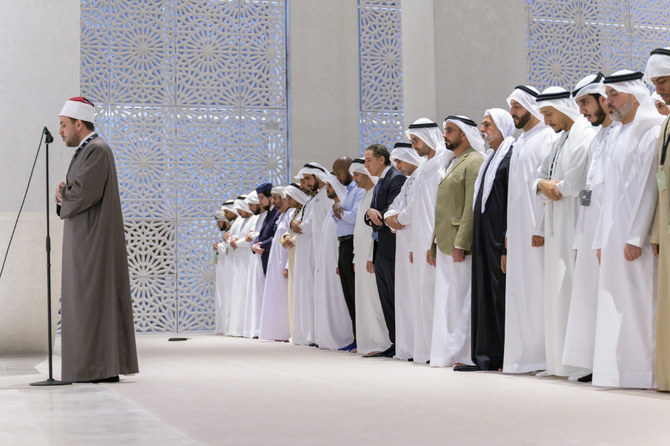DUBAI: A rabbi, a bishop and an imam walk into a room. It sounds like the start of a good joke. In fact, it represents a historic moment for interfaith relations that was brought about by the signing of the Document on Human Fraternity in February 2019.
Signed by Pope Francis and Grand Imam of Al-Azhar Ahmed El-Tayeb, the document called on followers of the three Abrahamic faiths to create bonds of peace and dialogue. This led to the establishment of the Abrahamic Family House, which opened in Abu Dhabi in March.
Featuring a synagogue, a church and a mosque, each decorated with variations on the same pillars — zigzagged, straight and arched — the house gives each place of worship its own distinctive visual identity, while hinting at their many similarities.
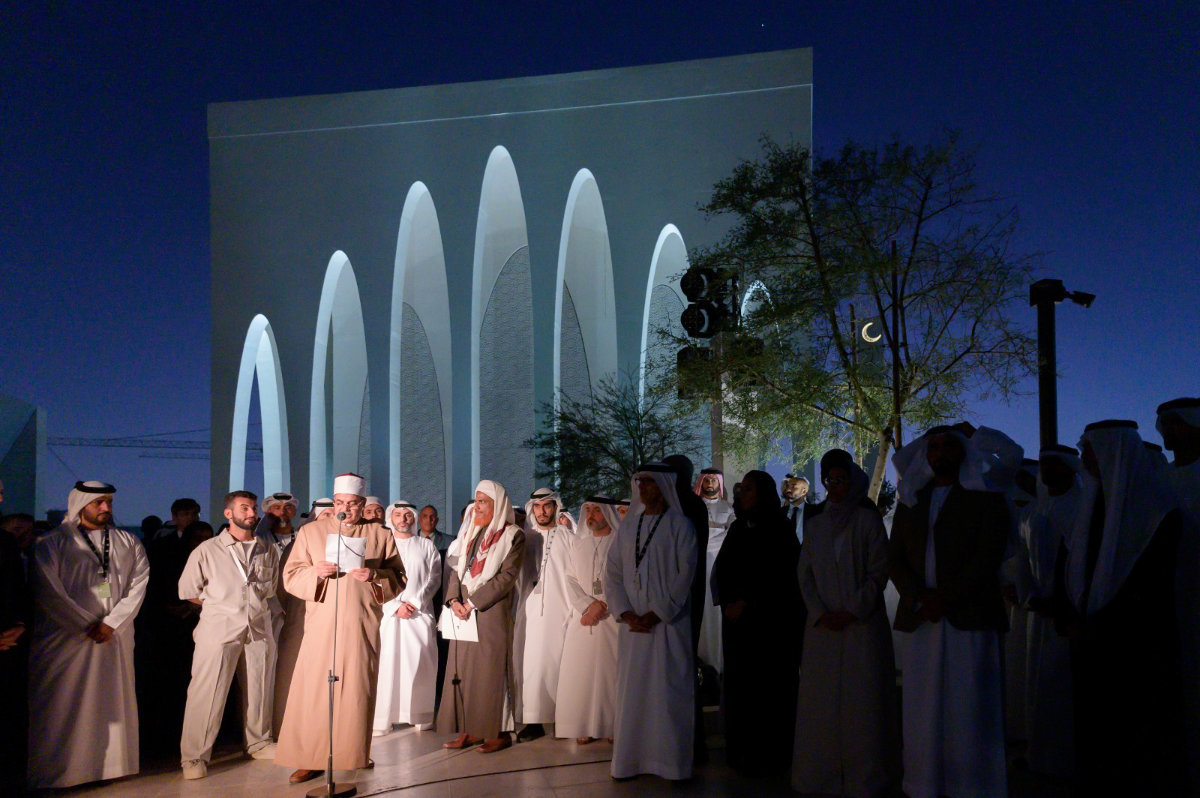
The facility located in Abu Dhabi’s Saadiyat Cultural District was inaugurated by religious and UAE officials in February as a place of mutual respect, where worshippers, including the local Jewish minority can feel secure. (WAM photo)
The idea was to provide followers of the three faiths with a single location where they could worship separately on the same site. And thanks to its roof garden, visitors of all faiths are also able to mingle freely and share ideas.
The intimate venue is a new concept for interfaith relations and one that is being closely watched by governments and faith leaders worldwide. If it proves successful, the idea could catch on elsewhere.
It is not the intention of the founders of the facility to in any way merge the three religions. Nevertheless, Mahmoud Nagah, the imam of the house’s Eminence Ahmed El-Tayeb Mosque, said many people were initially confused about its purpose.
“When the Abrahamic Family House was first established and inaugurated there were a lot of misconceptions that were raised, suggesting it was calling for one religion, for the creation of one religion, which is the Abrahamic religion,” Nagah told Arab News.
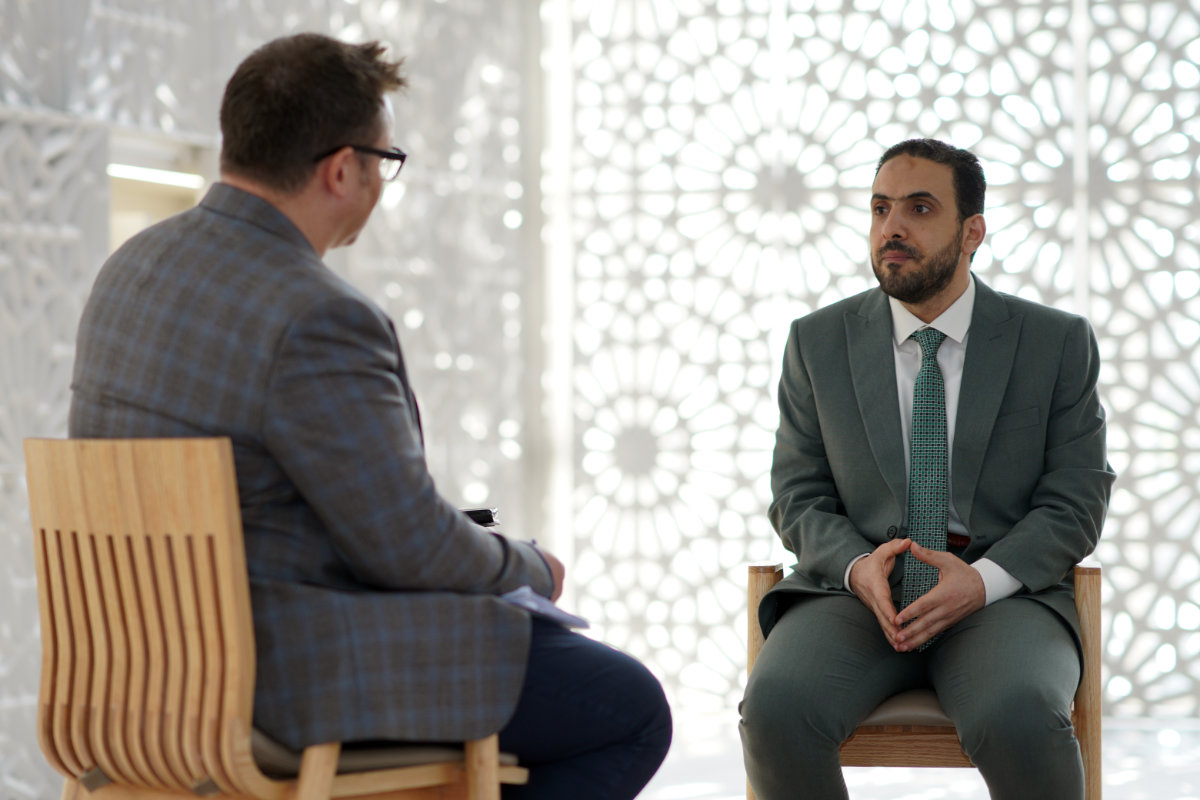
Imam Mahmoud Nagah being interviewed by Arab News senior online editor Peter Harrison. (AN photo)
It was an idea that became “entrenched in people’s hearts,” he added. However, such misconceptions were quickly corrected, he explained, when people had the chance to visit the house and experience it for themselves.
“When people come to the mosque — I’m speaking about Muslims — they say: ‘It’s a normal mosque like other mosques in the UAE,’” said Nagah.
 And the design of the three houses of worship is egalitarian; each is contained within a space of equal size to the others.
And the design of the three houses of worship is egalitarian; each is contained within a space of equal size to the others.
“We are here acting totally independently from the church and from the synagogue,” said Nagah. “This doesn’t mean that we shouldn’t gather together or engage in interfaith dialogue to search for the points that gather us together, not to divide us.”
Indeed, despite these clearly delineated spaces, the house collectively acts as a symbol of religious tolerance and a place in which all faiths can learn to understand one another in harmony.
“We shouldn’t use religions as something that divides people or that causes people to be in a state of conflict with each other,” said Nagah. At the very least, he said, religious faiths should pull communities together.
“Remove the barriers of ignorance that, from my personal point of view, are considered the strongest enemy for people,” he said. “Ignorance makes people unable to communicate with each other.”
Muslims account for about three-quarters of the UAE’s population, while the various Christian sects make up approximately 10 percent. The remaining 15 percent include a number of other faiths, including Hindus, Sikhs, Buddhists and Jews, according to figures published by the Washington Post.
It is worth noting that Emiratis — full citizens of the UAE — make up only 11 percent of the country’s total population.
The country’s constitution guarantees the freedom to worship, as long as doing so does not go against public policy. Islam is the official religion and there are laws in place outlawing blasphemy, proselytizing by non-Muslims, and conversion from Islam.
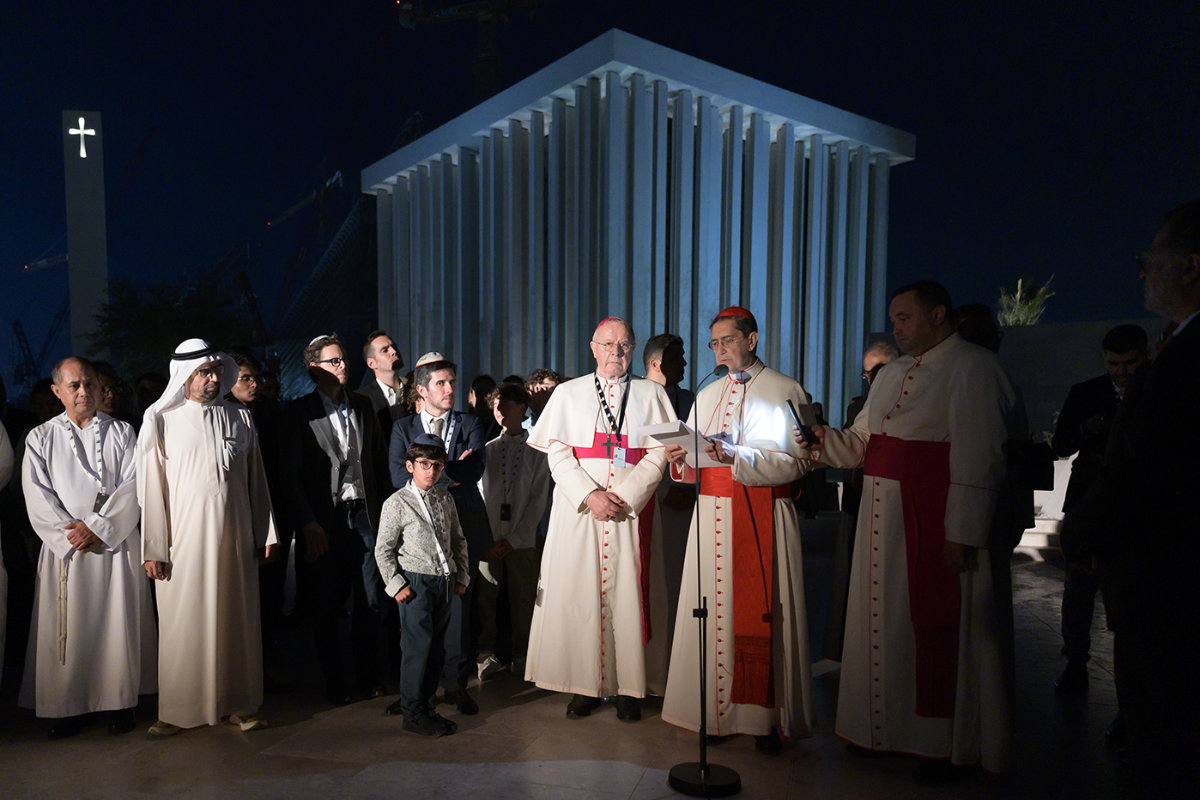
Vatican official Cardinal Miguel Ángel Ayuso Guixot, speaking during the launch of the Abrahamic Family House, said the new facility "is a concrete example for people of different religions, cultures, traditions, and beliefs to return to the essential: love of neighbor.” (WAM photo).
Beginning in September 2020, the UAE, Bahrain and Morocco normalized relations with Israel when they signed the US-brokered Abraham Accords, thereby opening the door to mutual trade, diplomatic relations and security cooperation. It also cleared the way for people of the Jewish faith to visit and emigrate to the UAE.
There remains a lot of skepticism about the Abraham Accords and their role in the Middle East peace process, especially as Israeli authorities continue to occupy Palestinian territories and support the building of settlements.
But such differences with Israel on political issues have not halted the growth of the UAE’s Jewish population. The Moses Ben Maimon Synagogue at the Abrahamic Family House is the first purpose-built synagogue in the Gulf in almost 100 years and its chief rabbi, Yehuda Sarna, said the Jewish population continues to grow “organically.”
“It grew because people felt safe. They felt that there was a high quality of life. They felt like they could be themselves. That’s the thing that hooked me,” Sarna, who is originally from Canada, told Arab News.
“I’ve been coming here since 2010. What hooked me was the mystery of why Jewish people would pick up and leave countries that they were born in and decide to move here. And it’s because they feel welcome.”
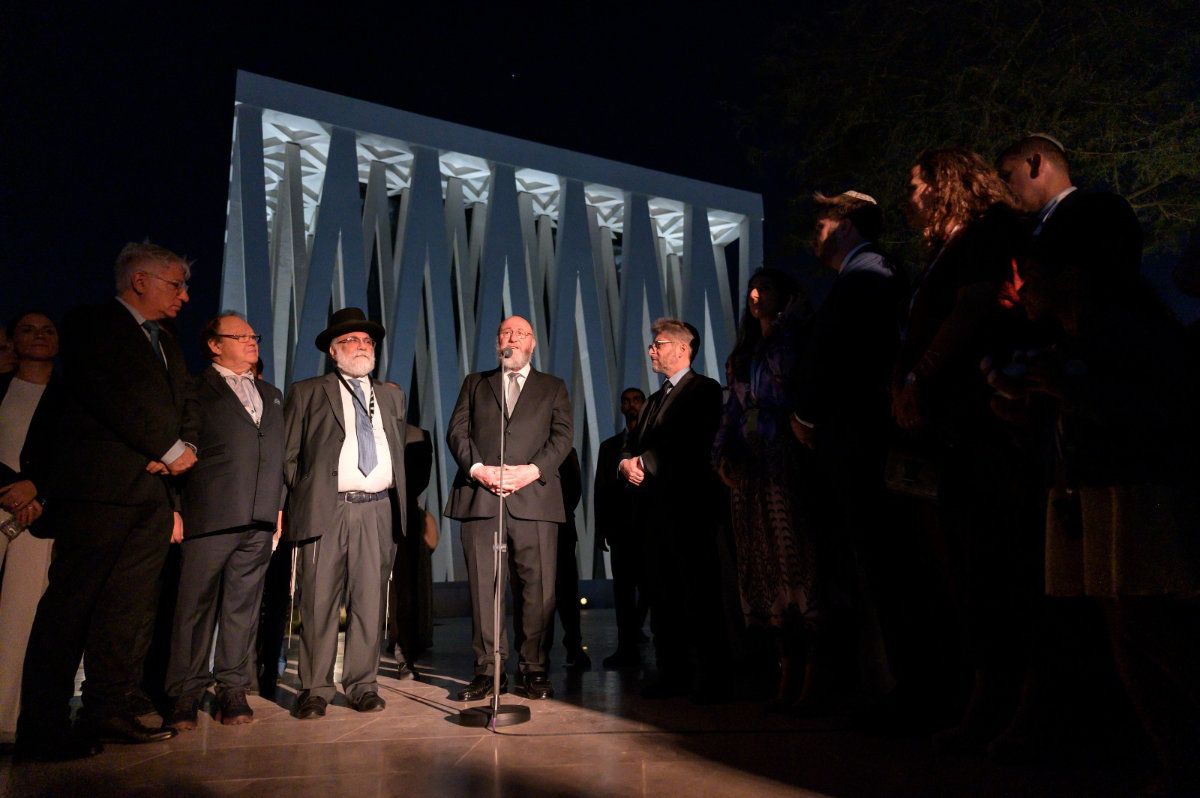
Sir Ephraim Mirvis, chief rabbi of the United Hebrew Congregations of the Commonwealth, said, “In a world in which differences can separate us, let us say here that our shared values shall exist for the sake of our universal aspirations.” (WAM photo)
Hostility toward Jewish populations remains a very real issue in countries worldwide but not in the UAE, said Sarna.
“There are moments, at different points, when there have been spikes in antisemitic actions around the world,” he said. “What’s interesting is to see that (Jewish) people here, in the UAE, are the ones who are now calling their friends and relatives in other countries to check on them. But here they felt safe.”
The synagogue’s design was chosen by the Jewish community without any outside intervention, he explained.
“There was no point at which anything was imposed, architecturally. This was emblematic of the approach as a whole,” Sarna said.
“There are Jews who were children of Holocaust survivors who have come here. There are people who were imprisoned by the Houthis in Yemen because of their religion. There are people who escaped threats by Saddam Hussein and his regime (in Iraq) who have come here. There are people who ran away just with their siblings from Iran. We’ve come here and now are part of this Jewish community.”
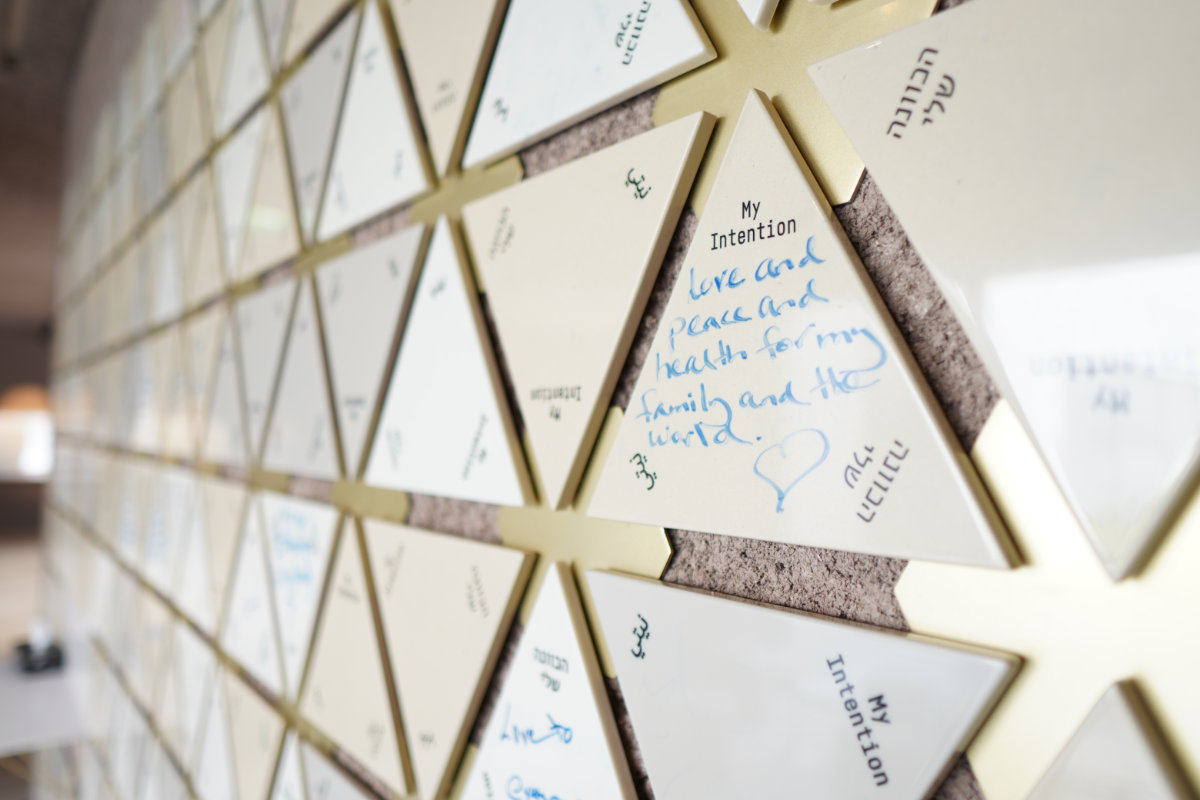
Intention notes are inscribed on the wall inside the Jewish place of worship that is part of the Abrahamic Family House in Abu Dhabi. (SRPC photo)
Given the initial success of the Abrahamic Family House, Sarna said he can definitely see a bright future for similar projects in other parts of the world, which could help create cohesive bonds between followers of all faiths, despite their differences.
Such differences, Sarna and Nagah agree, must not stand in the way of peaceful coexistence — which is the ultimate aim of the Abrahamic Family House.
Paulo Martinelli shares their view. The vicar of the Apostolic Vicariate of Southern Arabia and chief pastor of St. Francis Church, he was appointed by Pope Francis to lead Catholic prayer at the Abrahamic Family House. He also leads the Catholic communities in Yemen and Oman. Prior to the COVID-19 pandemic, this combined community in the three countries was 1 million strong, concentrated primarily in the UAE.
“It’s so beautiful to gather together here to celebrate mass, to pray together,” Martinelli told Arab News.
“Also here, of course, is a particularly interesting place because it’s not only a Catholic church but it’s a Catholic church in the Abrahamic Family House, in which we have three different places of worship.
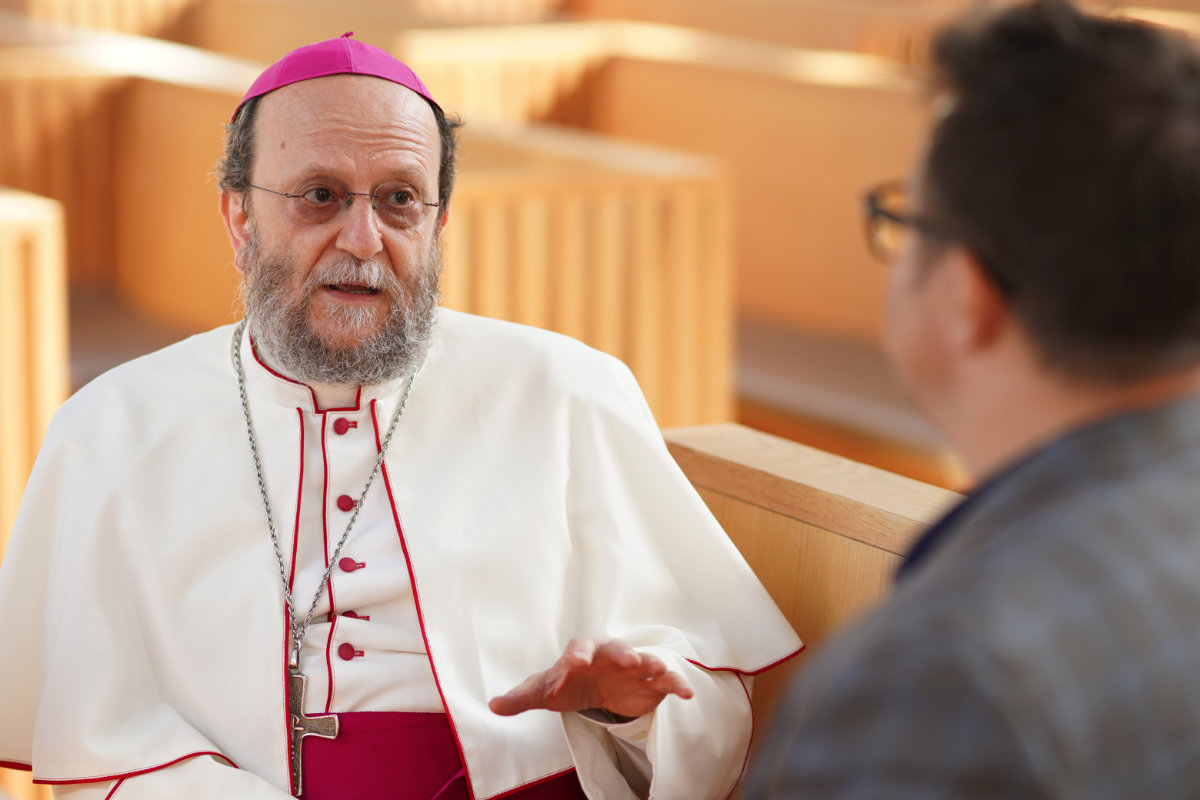
Bishop Paulo Martinelli being interviewed by Arab News senior online editor Peter Harrison. (SRPC photo)
“We (the three faiths) are clearly different but we are also together. So we can share our experiences and show the world that it is possible to work together, even though we are different.”
Martinelli believes there is a huge potential for similar interfaith sites to succeed elsewhere in the world.
“I think it is a great opportunity to have such a place and to show that it’s possible to be different and to be, at the same time, together to share values,” he said.
The Abrahamic Family House in Abu Dhabi opened to the public in March. Since then, a rabbi, a bishop and an imam have regularly been seen walking into the same building. Although they pray in separate spaces, they share a common dream of peaceful religious coexistence.
And such a goal is certainly no joke.
